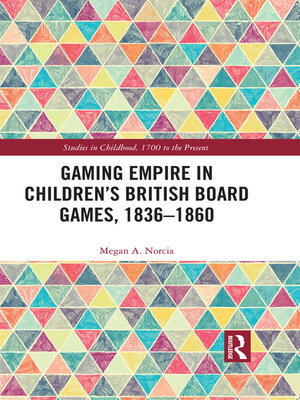
Sign up to save your library
With an OverDrive account, you can save your favorite libraries for at-a-glance information about availability. Find out more about OverDrive accounts.
Find this title in Libby, the library reading app by OverDrive.



Search for a digital library with this title
Title found at these libraries:
| Library Name | Distance |
|---|---|
| Loading... |
Over a century before Monopoly invited child players to bankrupt one another with merry ruthlessness, a lively and profitable board game industry thrived in Britain from the 1750s onward, thanks to publishers like John Wallis, John Betts, and William Spooner. As part of the new wave of materials catering to the developing mass market of child consumers, the games steadily acquainted future upper- and middle-class empire builders (even the royal family themselves) with the strategies of imperial rule: cultivating, trading, engaging in conflict, displaying, and competing. In their parlors, these players learned the techniques of successful colonial management by playing games such as Spooner's A Voyage of Discovery, or Betts' A Tour of the British Colonies and Foreign Possessions. These games shaped ideologies about nation, race, and imperial duty, challenging the portrait of Britons as "absent-minded imperialists." Considered on a continuum with children's geography primers and adventure tales, these games offer a new way to historicize the Victorians, Britain, and Empire itself. The archival research conducted here illustrates the changing disciplinary landscape of children's literature/culture studies, as well as nineteenth-century imperial studies, by situating the games at the intersection of material and literary culture.







